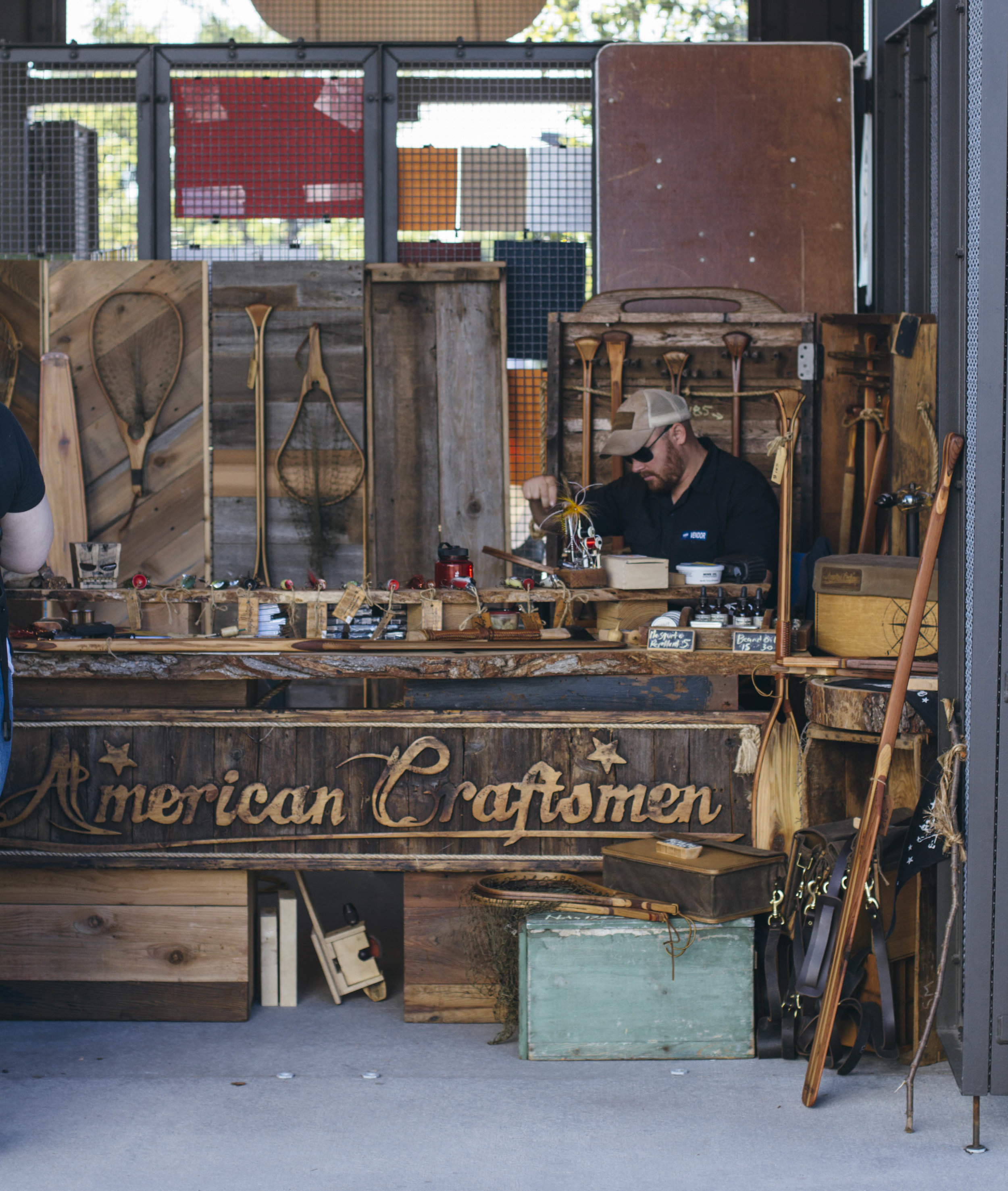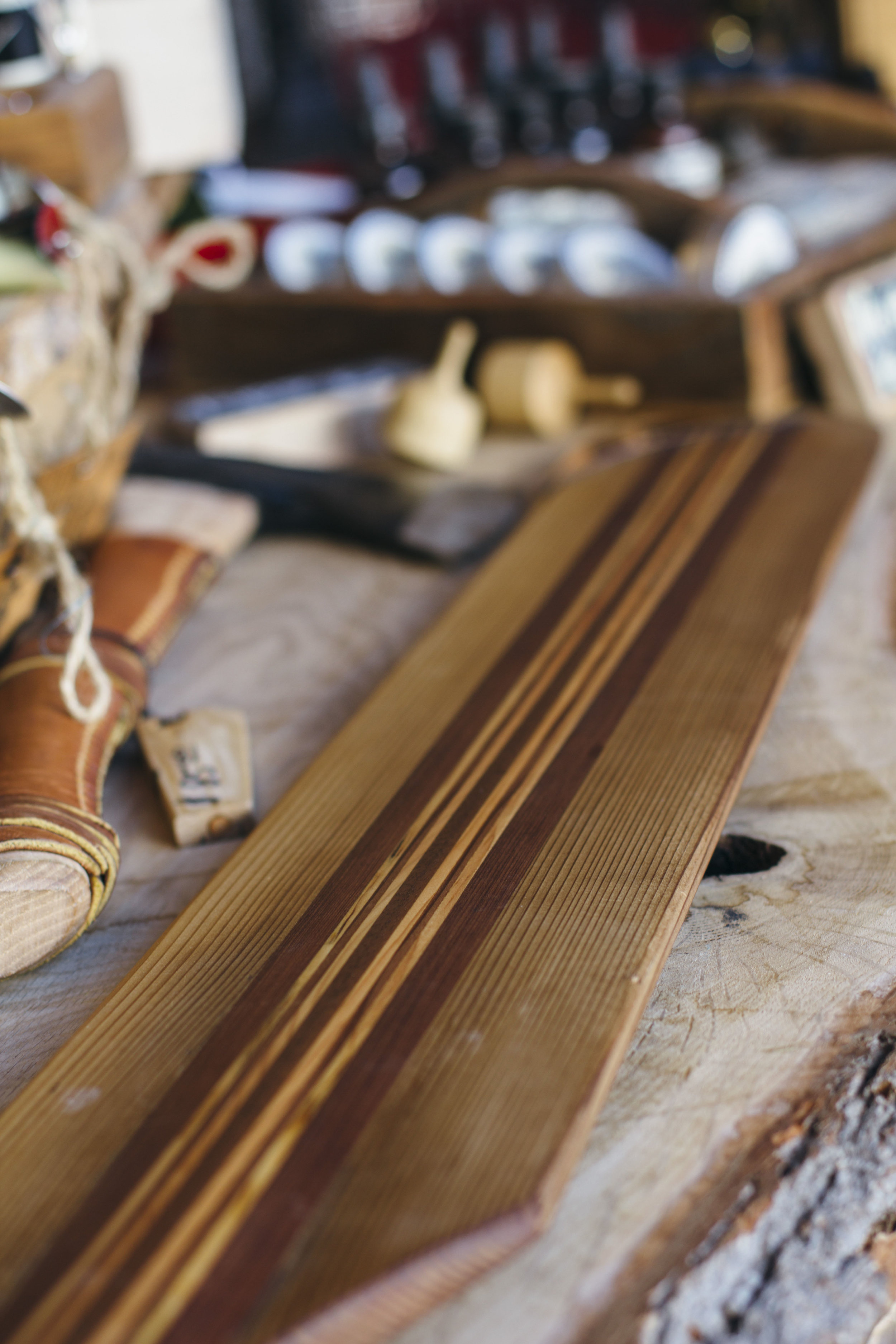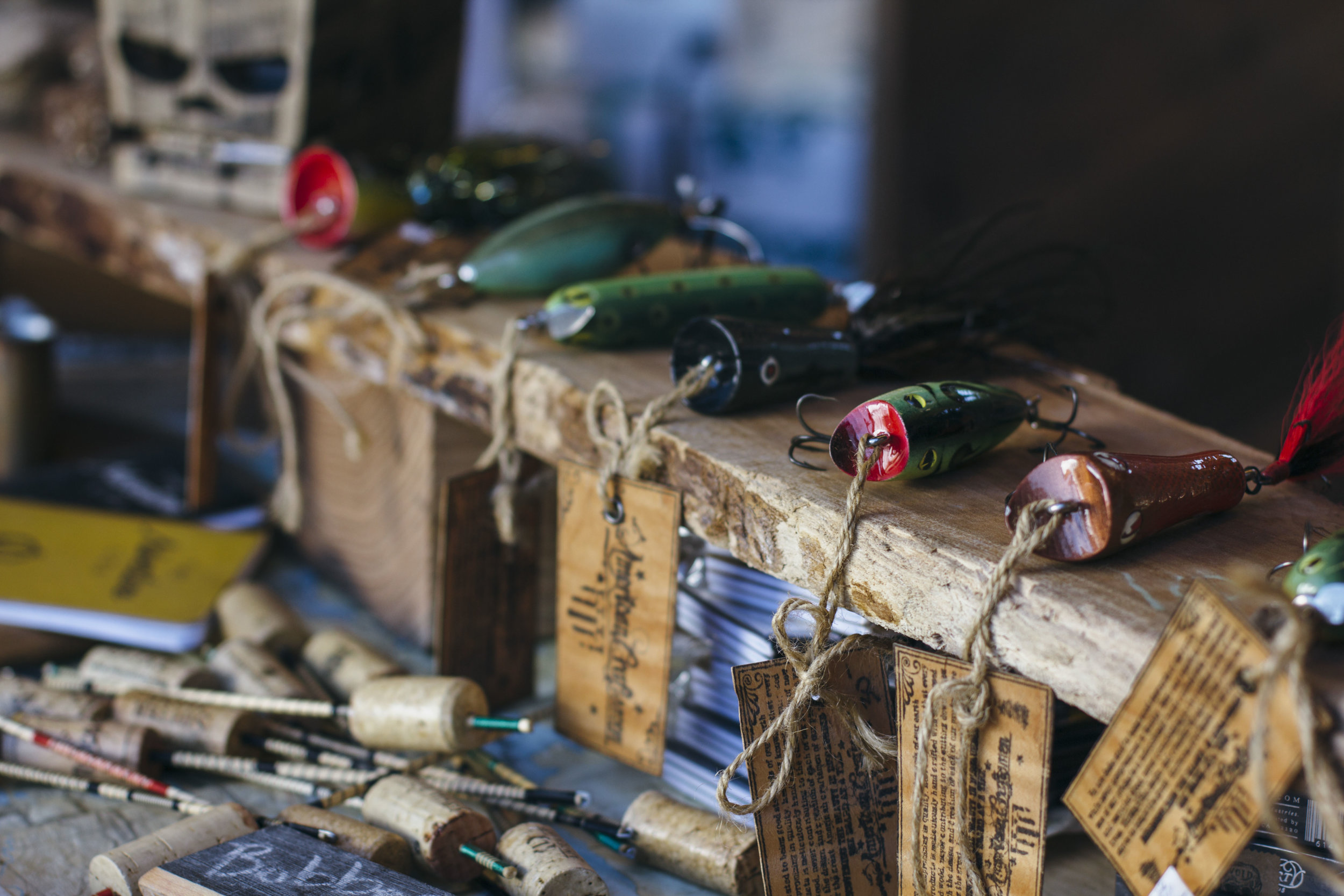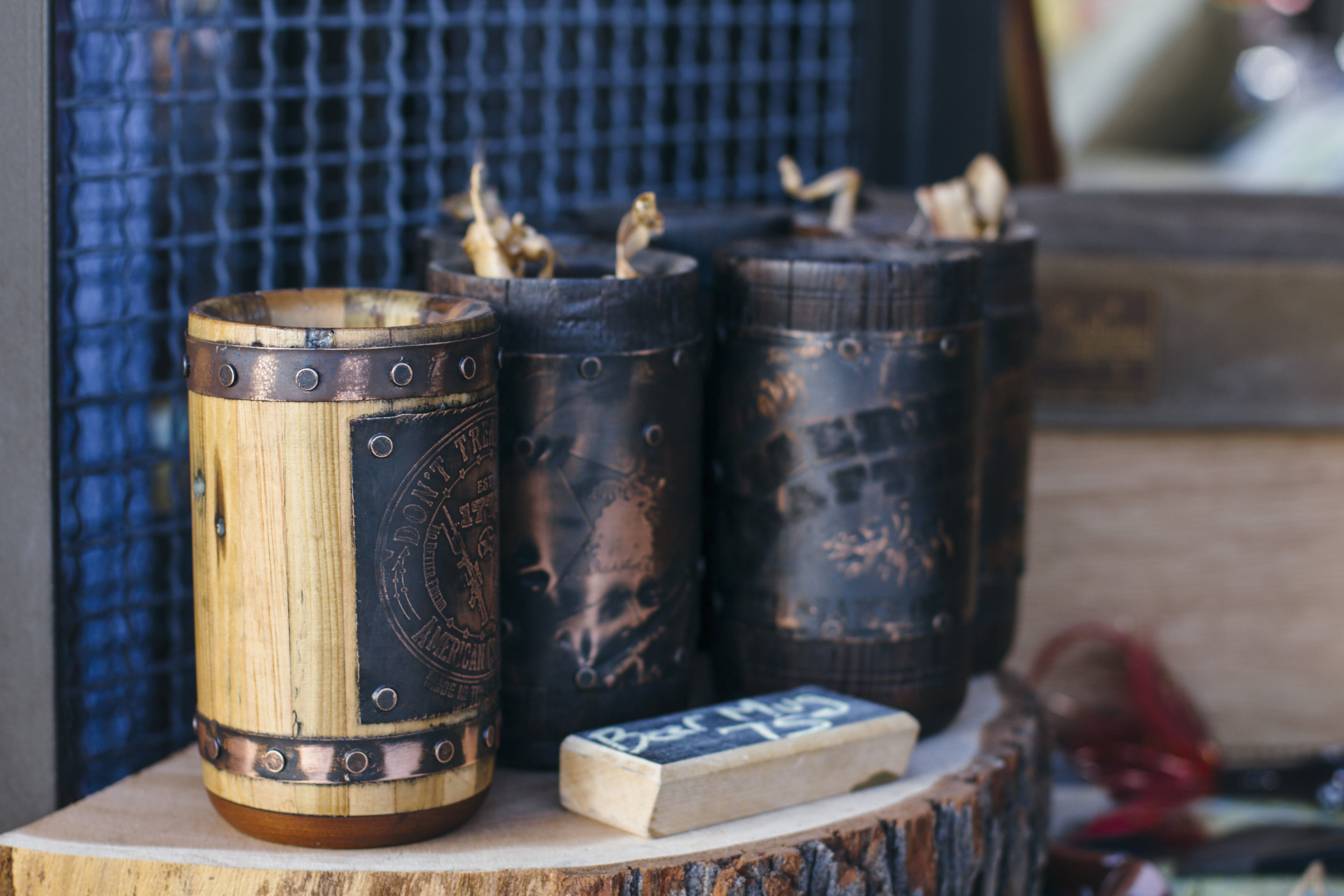Jesse Gerhard
Jesse Gerhard grew up woodworking at a young age with his father. After spending a good deal of his adult life in the Marine Corps, he decided to pursue his dream of making things, living in the woods, and catching fish. As the founder of American Craftsmen, his intention is to do things differently - and to do that, he believes that you must start in a new direction. So, the team behind American Craftsmen makes things from lumber that has already lived its life, from wood they find along the roadway, in dumpsters, and in burn piles. Their goal is not to recycle, but to truly make things new, to take what people think of as trash and make it beautiful. They strive to be good stewards of the earth while relying on their skill and craftsmanship to make things well.
Jesse's desire through American Craftsmen is to craft the best product he can, using all American manufactured components. Each investment their customers make in their products goes back into seeking out and showcasing likeminded American makers. So when the next generation looks back, "Made in the USA" is not just stating where it was made, it is a statement of quality, ethics, and the skill of the craftsmen.
Talk about the beginnings of American Craftsmen. What inspired you begin this endeavor? Growing up, I worked with my father, everyday. So much so that I missed a full year of school for two years. My father is incredibly resourceful. From a young age he taught us how to make a working bike from three broken ones we scavenged from dumpsters. He showed us how to rebuild a motorcycle that would have years of weeds overtaking the motor. My father taught me to see the great value in what others thought was trash.
When I turned 18, he sent me a bill for the rent of my room, so I joined the Marine Corps. I served 8 and 1/2 years as a machine gunner and three tours of duty. After returning, I used my GI Bill to get a degree in both Wood Finishing and Cabinetmaking. So it was not one day that inspired me to start my business, it was out of a lifetime of experience, training, and from a father who imprinted his ethics on my life.
Have you always been creative? What forms or channels have you explored in your creative journey? Growing up, I hated construction, and I still do. I found refuge in drawing, painting, and tinkering with electronics. I took every art class I could. Throughout my life, I have done block prints in wood, linoleum, and rubber, watercolor painting, mural painting, built furniture and arcades, drawn tattoos, and even designed defensive perimeters and built machine gun bunkers. I just created something from the materials I had at the time, whether that was just a pen and pencil in the desert, or a full woodshop in Minneapolis.
How have the items you make evolved? How have you evolved as an artist and business owner? Four years ago, my neighbor’s fence fell over, so I made a boat from it. Then I needed some paddles to actually use it, so I made six. Then I made some lures from the waste, a few nets, and some fire starters. I still make the same things but I am always trying to improve my stuff, whether it is changing the design or overall construction, or accenting with copper and leather.
After years of making things, I have personally evolved far more than the things I make. I am much more critical of the things I buy, not in regards to perceived quality or materials, but in ethics. The threshold for me to purchase an item hinges on the human impact of that item.
How has living and making in Minnesota influenced your creative work, specifically through American Craftsmen? Living in Minnesota, canoe country, has definitely shaped both what I make and how I make it. There are storms always blowing down fences, always new lakes to canoe, and big fish to find. Another great thing about Minnesota is that there seems to be a large group of conscious people looking to support the little guy.
Most of the wood you’re using to make your products is discarded. Why is this important to you? I use wood I find, mostly in dumpsters. I wanted to tell a small story of redemption—to take what people once saw as trash and make it new, give each piece a chance at a new life.
Do you feel like your work allows you to contribute to something bigger than yourself? The name of my tiny company is spelled with an “e” in Craftsmen and it was intentional. I did it because I work super hard to source every component from American manufacturers. I feel that those values, ethics, and protections we fight for are indeed worth fighting for. So when someone buys a single product from me, they are also supporting the dozens of other American companies I buy my glue, varnish, thread, paint, screws, feathers, leather, copper, rivets, and hooks from.





